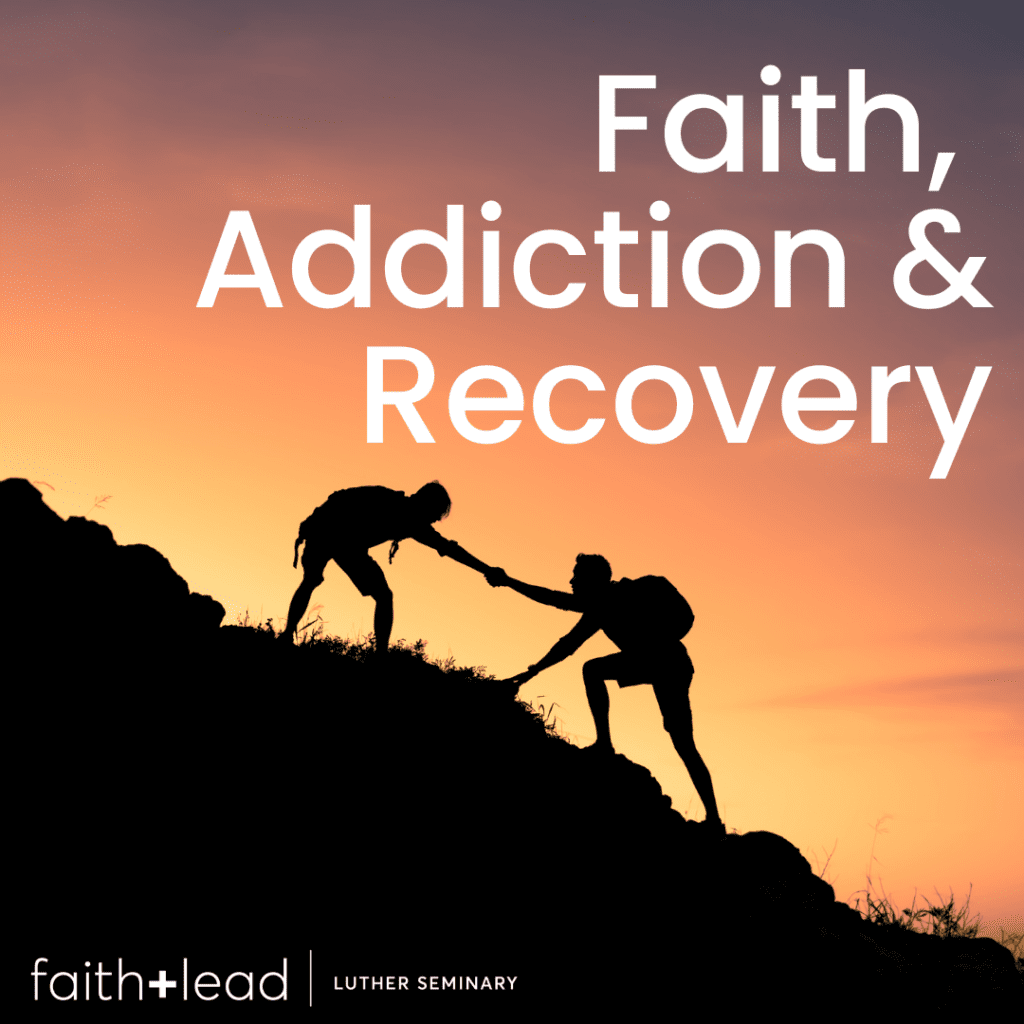This biblical reflection can be used by individuals or small groups and is applicable to those who don’t struggle with addiction as well as those that do. If used in a group setting, a social covenant of confidentiality, reflective listening, and non-judgment is recommended.
Read Proverbs 23:29-35
When I was newly sober, I was in a recovery meeting when this passage was referred to as evidence that the problem of alcoholism is at least as ancient as the Bible. The portrayal is striking both in its vivid depiction and accuracy—it causes one to wonder why anyone would continue drinking when they are having such dreadful consequences. The speaker then went on to explain the disease model of alcoholism (which also applies to addiction in general).
In this twofold model, it is not only the addict’s body that reacts differently than a non-addict’s body to alcohol, opioids, or other substances—usually with an intense physical craving. It is also their mind, which stays obsessed with using the substance even after they have realized they need to give it up. I suddenly understood why I always craved alcohol after communion. I also understood why, despite my earnest efforts and true intentions, I had previously been unable to stop drinking. It wasn’t because I was bad, but rather because I was sick.
Read Proverbs 23:29-35 again
Questions for self-reflection or group discussion:
- How do you feel when you read this passage?
- Is there someone specific that comes to mind?
- What do you think when you see someone returning to a behavior pattern that has been harmful to them?
- What behaviors, habits, or thought patterns do you continue to return to?
Action:
Before moving on, say a quick prayer for the person that came to mind or for those struggling with addiction in general.
Read Romans 7:15-25
It’s common to hear people in recovery meetings talk about their disease as if it’s something that lives in them, but is not them. I recently heard the term “sin nature” described as a non-essential part of self, a parasite that feeds off of our resentment, fear, and pain. Like addiction, sin nature is not a curable condition. Also like addiction, it is a treatable one.
In 12-Step recovery, it is said that even though the disease is physical and mental, the solution is spiritual.The purpose of the 12 Steps is to lead the suffering person into a relationship with God, or in the case of someone who already knows God, one with the depth and grit they need to recover.
God’s love and forgiveness are free and without condition—we don’t have to work for them. However, we all still get stuck in old ways, whether they have to do with substance abuse or “normal” sin (like judging those that can’t seem to stay unstuck). Getting and staying free require some willingness on our part to allow God to change us from the inside out, but verse 25 is clear —it is God who delivers us through our Lord Jesus Christ.
Reread Romans 7:15-25
Questions for self-reflection or group discussion:
- What do you think “sin nature” is?
- What’s an example from your own life that comes to mind when you read this passage?
- How does it feel to be stuck?
- How do you see God working to free you?
Action:
Throughout the next week, notice when an old, unhelpful behavior or way of thinking tries to draw you in. Were you feeling resentful, worried, or hurt when it happened? How might God be calling you to handle that fear or pain in a new way? Ask God to help you.
Optional, to go deeper:
Read Hebrews 4:14-16
As a person in recovery, knowing that Jesus turned down a pain killer (sour wine mixed with gall Matthew 27:34) while suffering the agony of crucifixion was important for me in learning to cope with intense emotional pain without alcohol. I needed a God that got what I was going through.
Questions for self-reflection or group discussion:
- When you are going through hard things, is it easy for you to imagine that Jesus has gone through them, too?
- What do you need God to “get”?
- What does it mean to approach the throne of grace with boldness?
Action:
Spend some time in silence. Imagine Jesus is there with you, and tell him what you most need him to understand. Wait for a response.
Further Reading:
- Breathing Underwater, Fr. Richard Rohr
- Seeds of Grace: Reflections on the Spirituality of Alcoholics Anonymous, Sister Molly Monahan
- Thirst, James Nelson
12-Step support:
- Al-Anon Family Groups (for adults, teens, and children who have a loved one with addiction) – www.al-anon.org
- Adult Children of Alcoholics & Dysfunctional Families – www.adultchildren.org
- Alcoholics Anonymous (for those who want to stop drinking) www.aa.org
- Narcotics Anonymous (for those who want to stop drug use) www.na.org
Other Support:
- Open Path Psychotherapy Collective (therapy for those who can’t otherwise afford it) – www.openpathcollective.org
- Substance Abuse and Mental Health Services Administration – www.samhsa.gov
- The Addict’s Parents United – www.tapunited.org
Additional resources can be found at The Center of Addition and Faith www.addictionandfaith.com




